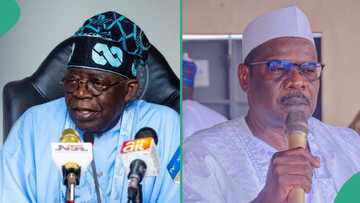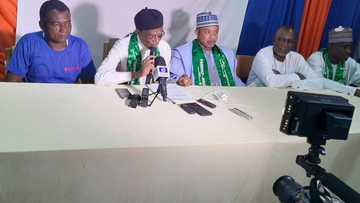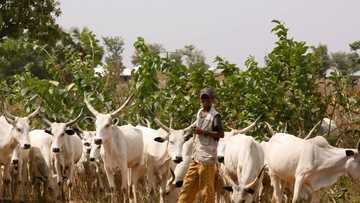Political crisis in Nigeria from 1960 till date
When we speak about a political crisis in Nigeria, we need to remember that, in fact, there have been several ones. Since the moment the country became independent and up to the present days, there have been a range of smaller and bigger crises. What were the reasons and solutions? Can they be stopped? Just keep on reading to find out.
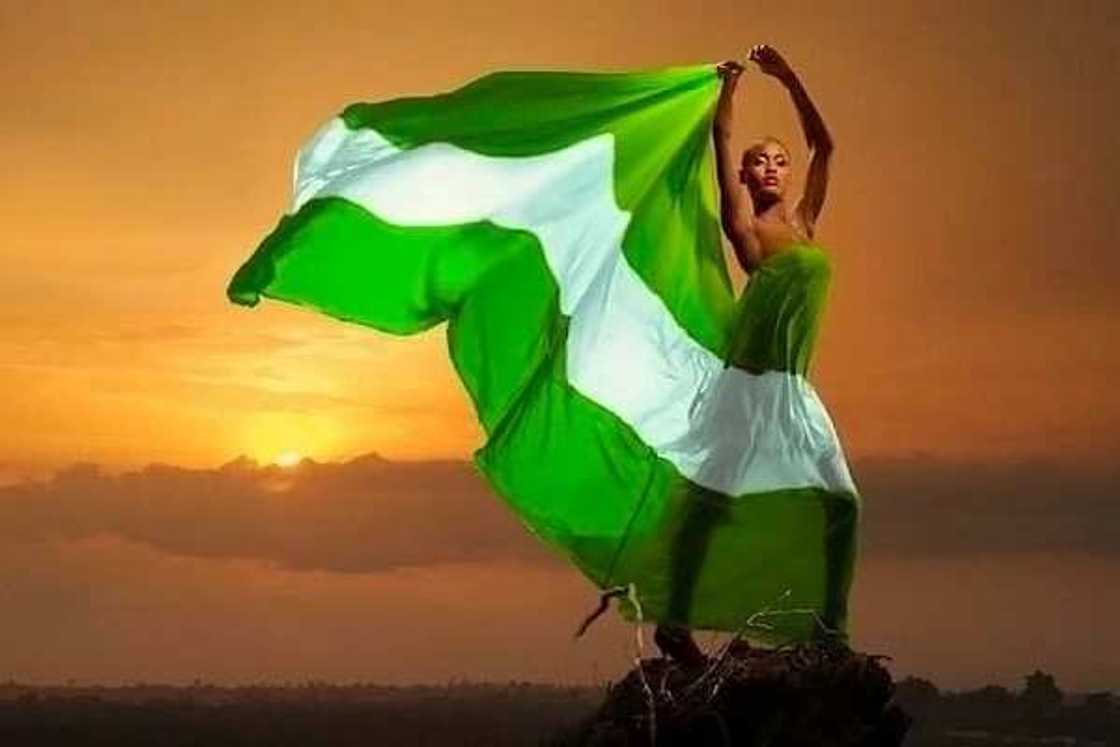
Source: UGC
Image source: shutterstock.com
Nigerian crisis 1960s
Right after the obtaining its long-awaited Independence from the British colonists, Nigeria suffered several major political conflicts that led to very sad consequences and a lot of disorder in the country. Since October 1, 1960, leaders of political parties and regional governments were trying hard to keep the order in the country and prevent political confrontations.
Benjamin Nnamdi Azikiwe was elected as the President opposed by Obafemi Awolowo. Regional leaders at that time were: Ahmadu Bello (the head of the Northern region), S. Akintola (the head of the Western region), M. Okpara (the head of the Eastern region). The fourth one, Middle-Western, which included eastern parts of the Western Nigeria. This area was headed by the ruling party, to which the President belonged to.
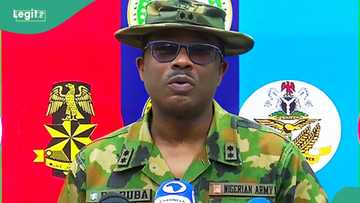
Read also
Insecurity: Concerns as Defence HQ uncovers fresh activities of foreign terrorists, details emerge
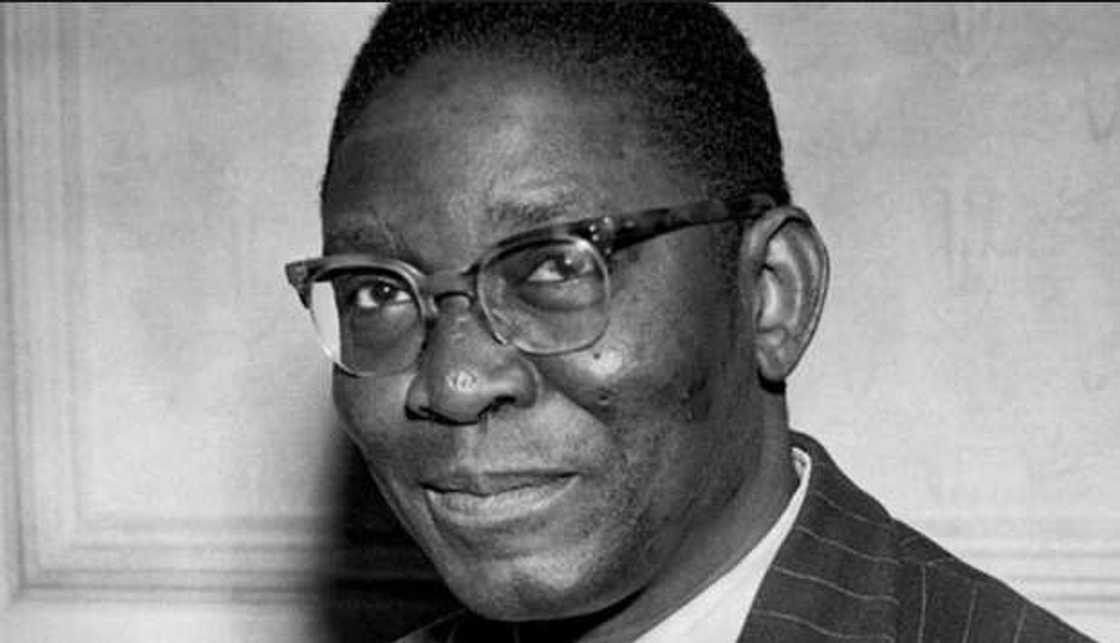
Source: UGC
Benjamin Nnamdi Azikiwe
Image source: pulse.ng
READ ALSO: Brief history of Akwa Ibom state
However, in January 1966, a group of Igbo military officers decided that they did not like the current state of things with corruption and violence caused by the politicians.
A part of the officers refused to support such cruel revolution. The organizer of the coup was arrested. The General Johnson Ironsi became the head of the temporary government and brought in some order with military governors in all the provinces and other administrative assistants.
However, the fact that the mastermind of the coup was not immediately executed in military style by General Aguyi Ironsi led to a powerful negative reaction within the military.
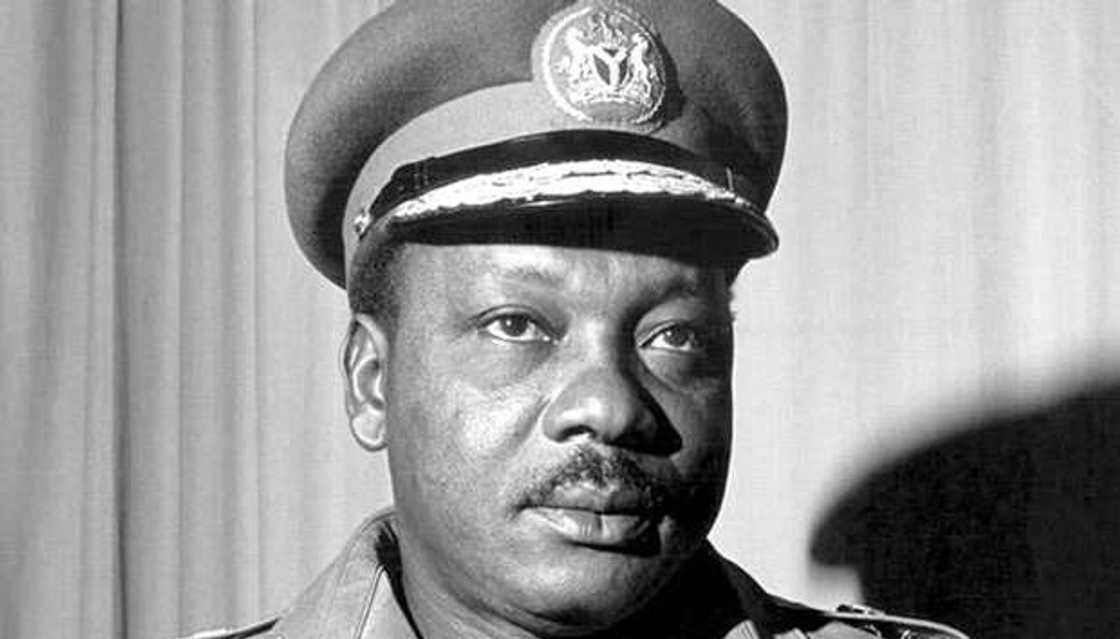
Source: UGC
Johnson Ironsi
Image source: guardian.ng
The northern regions saw a threat to their interests in the coup and immediately reacted. Conflicts between ethnic groups occurred all around the country. Already in July, another group of military officers, this time northern ones, organized a new coup, which brought Yakubu Gowon to power till 1975.
In the course of the new coup, all Igbos who had ruling positions in the government of Nigeria, in total, about 400 persons were reportedly killed. Northern regions were swept by the persecution of Igbo, thousands of people were killed. Igbos fled to the eastern part of the country trying to escape the cruelty.
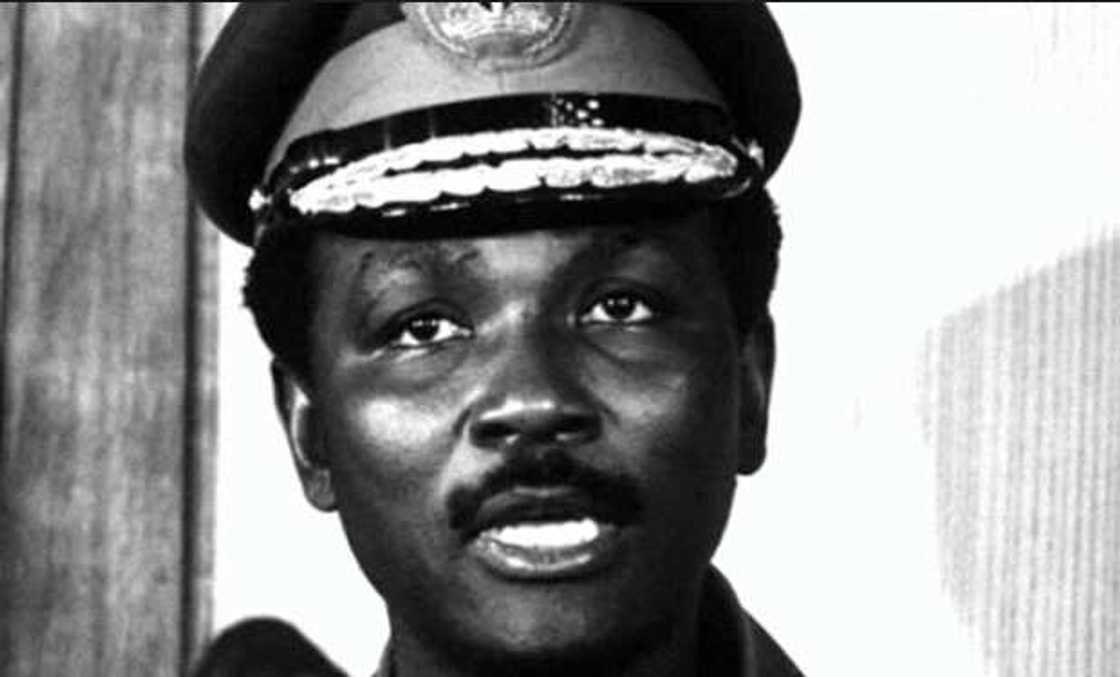
Source: UGC
Yakubu Gowon
Image source: guardian.ng
The Eastern region seceded and and started a new country named Biafra and this led to a full-scale civil war in Nigeria that lasted from 1967 to 1970. This conflict was known as one of the two most cruel confrontations in the 1960s after the war in Vietnam.
Different sources claim that the number of victims was between 700,000 and 3,000,000, mainly in the Biafra area. They were killed in armed conflict or died due to starvation and diseases.
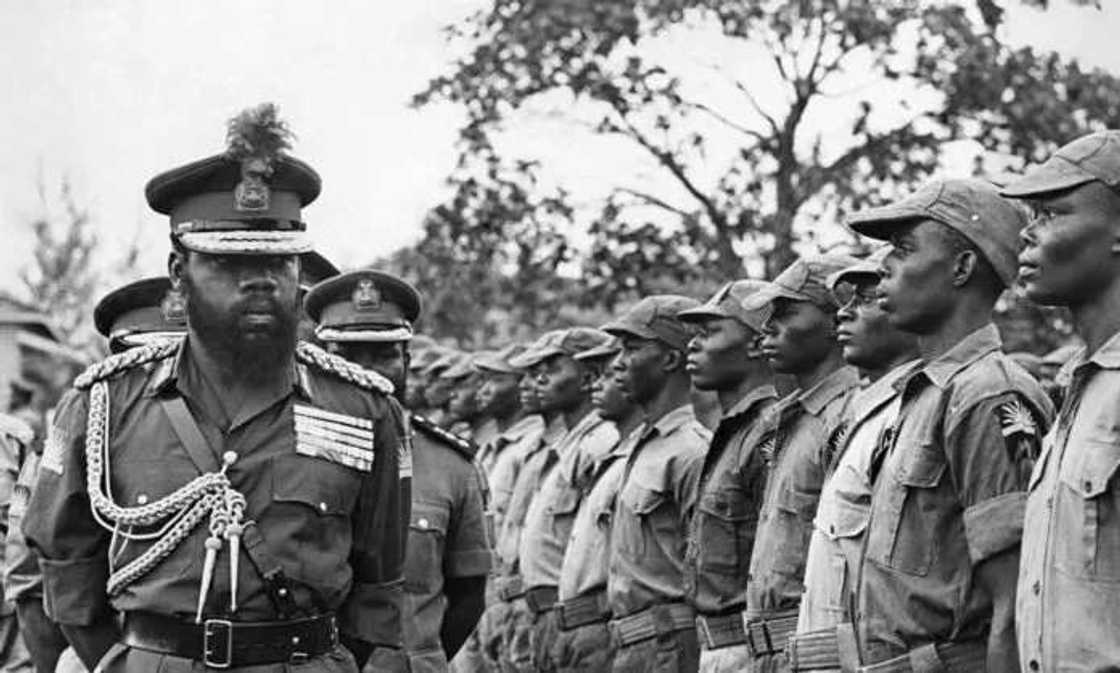
Source: UGC
Odumegwu Ojukwu
Image source: oasdom.com
READ ALSO: West African countries and their capitals
In 1970, the separatists were finally overcome by federal troops. The Biafra Republic was not recognized by the United Nations. The global community called Nigerians to peace. As a result of the conflict, the area, which used to be one of the most developed and prosperous in Africa, was ruined and devastated. Its population grew smaller by 2,000,000 people, mostly children who starved to death.
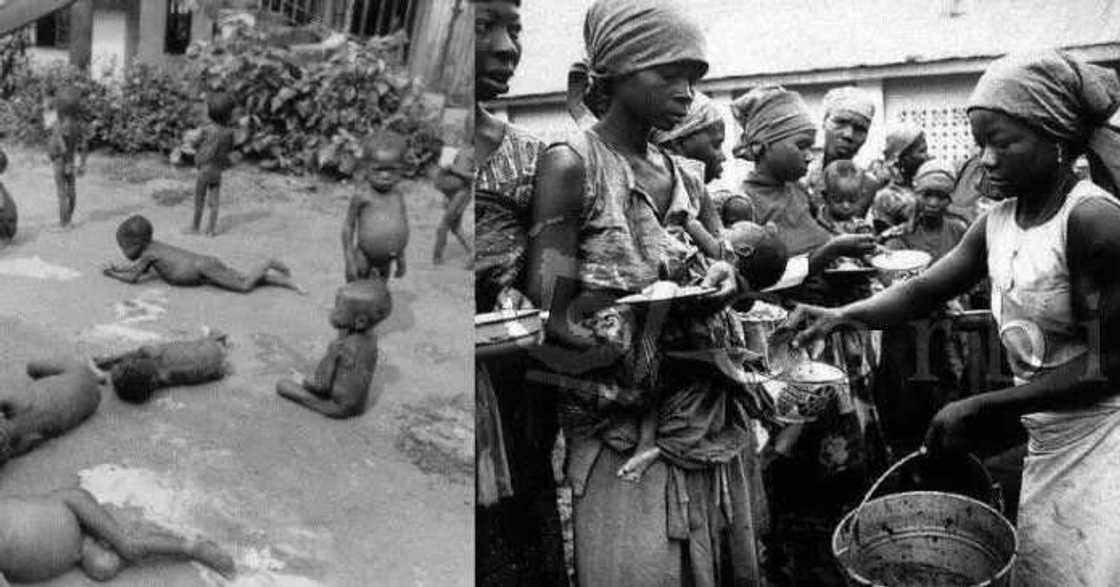
Source: UGC
Image source: oasdom.com
The echo of the confrontation is still visible because the blow was too hard for the country to stand it without consequences. There still is a movement for the independence of Biafra but today, they use peaceful methods and their main weapon is information.
Political crisis in Nigeria after the war
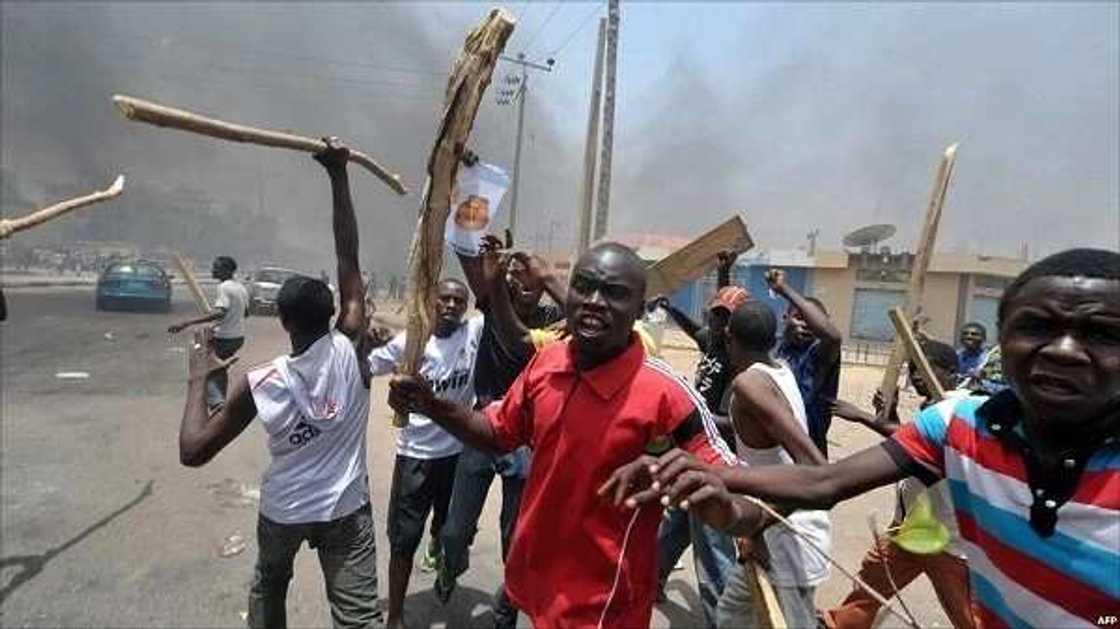
Source: UGC
Image source: bbc.co.uk
After the war, there came a time of new, minor conflicts. In 1976, there was another attempt at a military coup organized by Buka Suka Dimka but it was not successful. Olusegun Obasanjo gave power to a civilian government and this was the beginning of a new rule in Nigeria.
In the newest time, the majority of conflicts happen on religious grounds and conflicts between farmers and herders because the higher political regime seems to be stable at last. Bloody confrontations between Muslims and Christians have already taken hundreds of people’s lives.
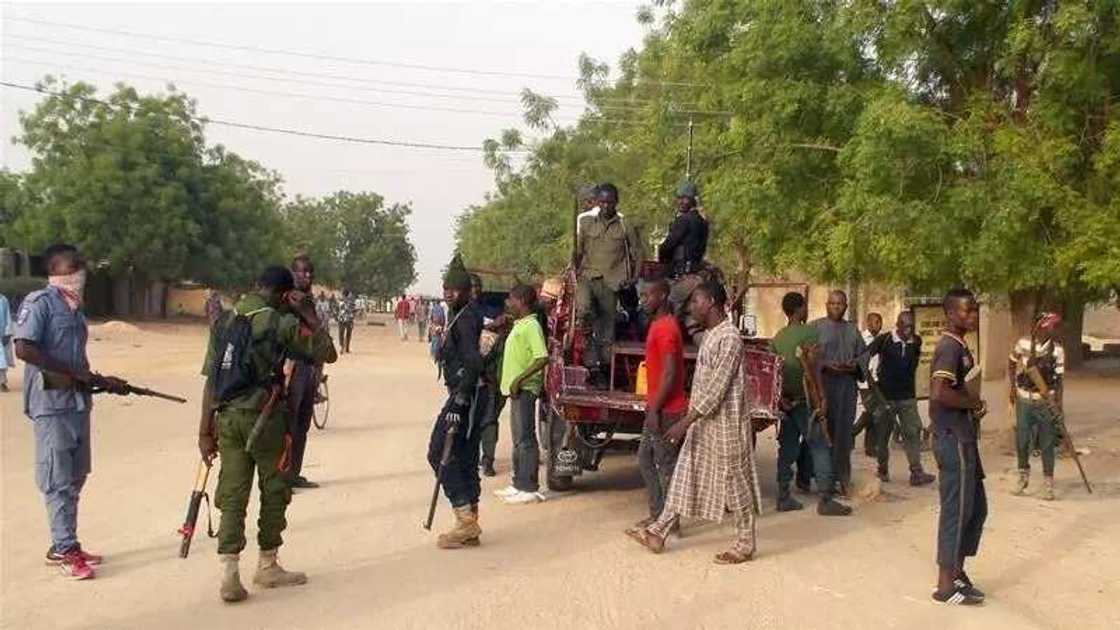
Source: UGC
Locals ready to oppose Boko Haram
Image source: bbc.co.uk
Another conflict in Nigeria based on religious grounds is the terroristic radical Muslim group Boko Haram, which fights for the purity of Islam and destruction of the “Western attributes” like elections, public education, and so on.
Regarding the current crisis in Nigeria and ways to solve it, probably, the only solution is working to put an end to terrorism permanently and the establishment of peace between all the existing religious and ethnic groups within the population.
READ ALSO: 7 ways Nigerians can promote our culture
SOURCE: nigerianinfopedia.com
Source: Legit.ng


